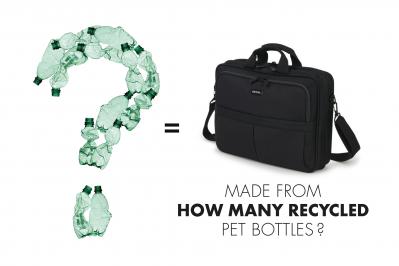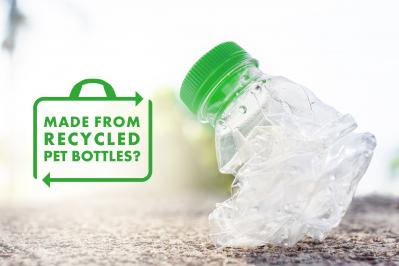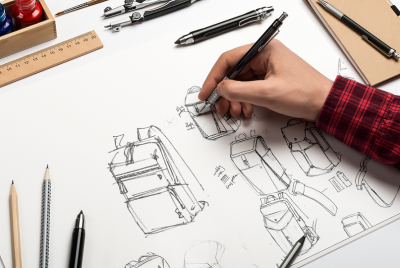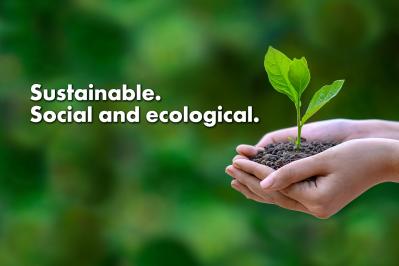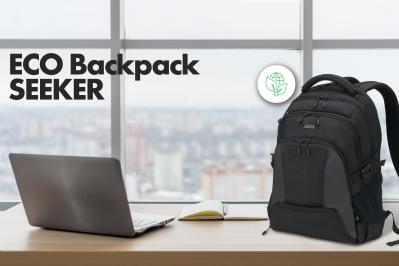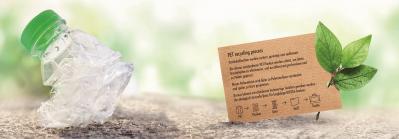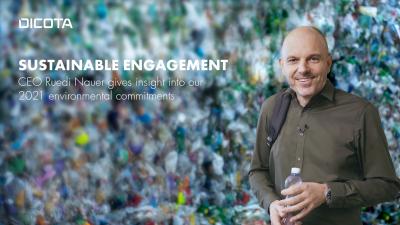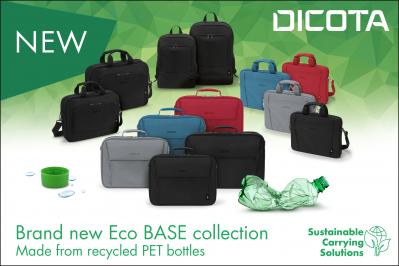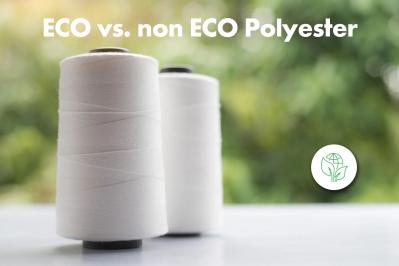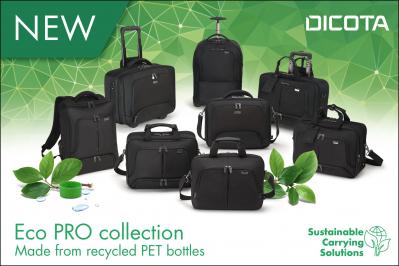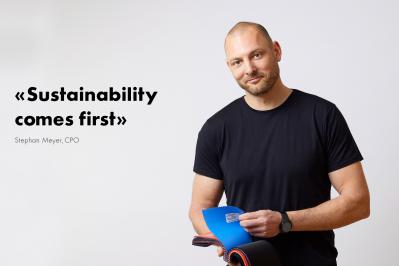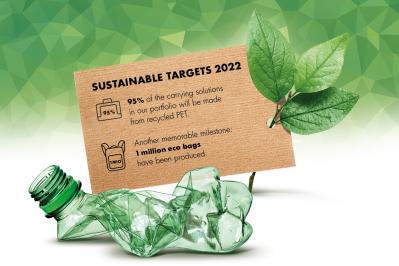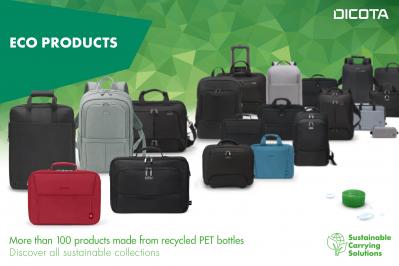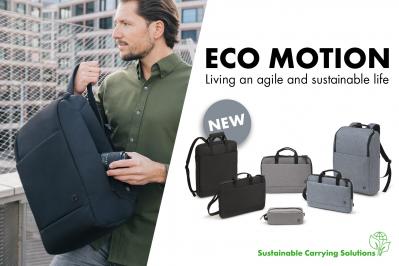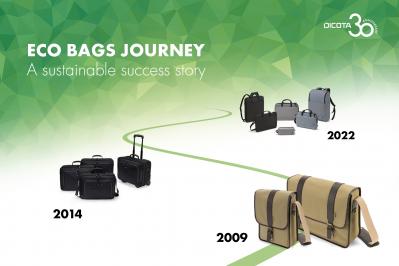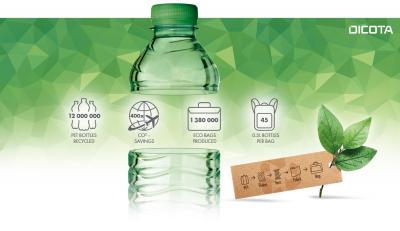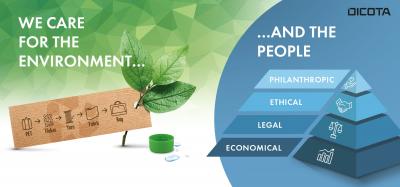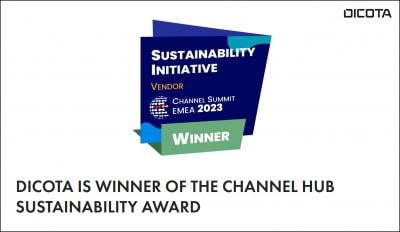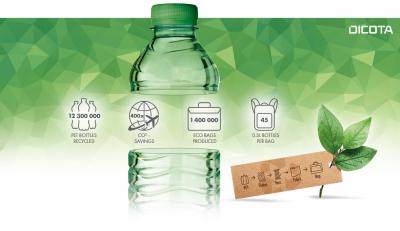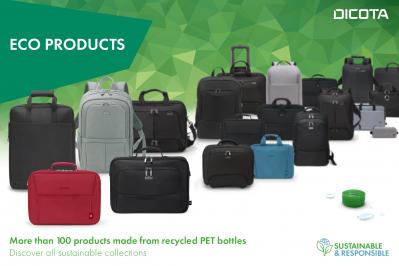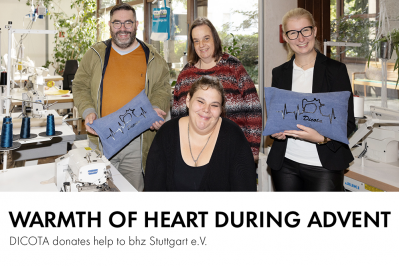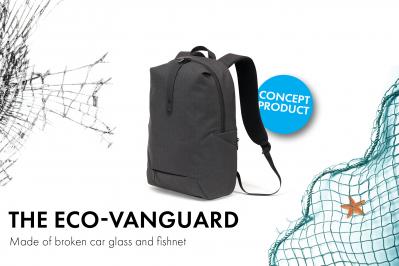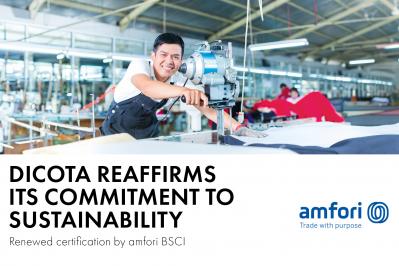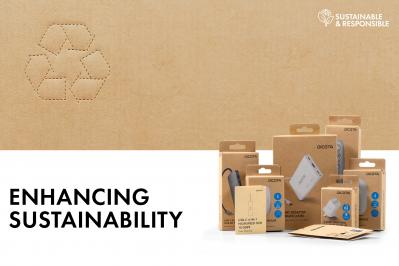We use cookies to make your experience better. To comply with the new e-Privacy directive, we need to ask for your consent to set the cookies. Learn more.
Positive interim balance for our 2022 sustainability goals
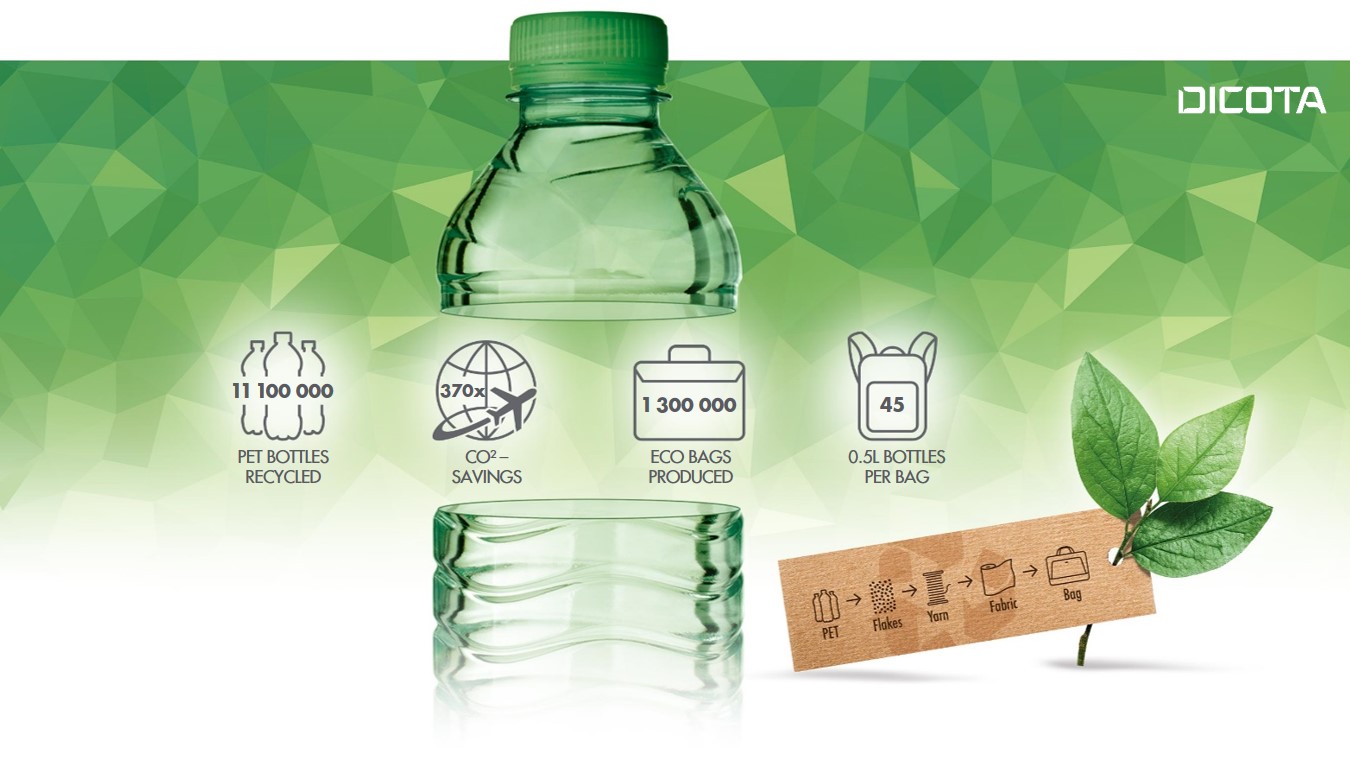
Anyone who has followed DICOTA over the last few years has noticed that a lot has happened in the area of sustainability. We have converted our main collections BASE and PRO to Eco BASE and Eco PRO and thus also our main material polyester to polyester made from recycled PET. Up to 45 PET bottles are given a second life in a laptop bag.
The first half of the year is now over and we would like to look at the goals we have already reached and those we plan to reach in the coming months.
We started 2022 with the following two promises:
- By the end of 2022, 95% of the carrying solutions (shoulder bags, backpacks and trolley bags) in our portfolio will be
made from recycled PET. - In the course of the year, we have reached another memorable milestone:1 million Eco bags have been produced.
These are the results so far
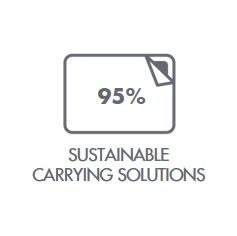
95% of the carrying solutions are made from rPET
With our new Eco MOTION collection, a new line of bags made from rPET bottles has been added to the portfolio. This means that five collections in our product range are already made from sustainable materials, making us the clear number one for sustainable carrying solutions. But our work is not done yet: by the end of the year, more bags in our existing range will be converted to rPET. And of course we are also developing new products.
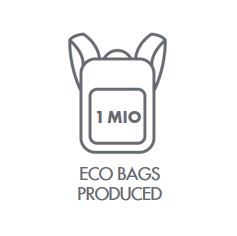
1 million Eco bags have been produced
We already broke the milestone of 1 million Eco bags produced back in April of this year. And we are not letting up: currently 1.3 million carrying solutions have been produced from rPET bottles, with more to come. The amount of reduction in CO2 emissions would allow you to travel around the world 370 times by plane.
Discover all eco collections here.
You too can contribute to a more sustainable world: by deliberately choosing a bag made from recycled PET, you can prevent used bottles from ending up in the ocean or landfills, where they can take up to 450 years to decompose. We are curious to see what you choose.





